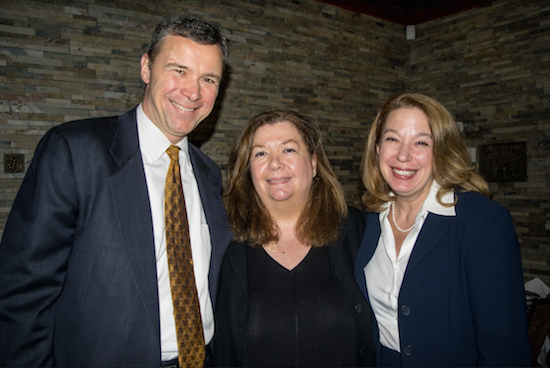Bay Ridge Lawyers Association gets tips on mediation and arbitration at CLE meeting

The Bay Ridge Lawyers Association (BRLA) hosted a continuing legal education (CLE) seminar where Hon. Elizabeth Bonina gave practical tips on alternative dispute resolution at The Pearl Room in Bay Ridge on Wednesday night.
“She grew up almost around the corner on 83rd and 3rd Avenue,” said her brother and former law partner John Bonina. “Beth is a product of Villanova University and Brooklyn Law School. She was the chief administrative law judge for the taxi and limousine commission, she was on the Supreme Court here in Kings County in 2002, after which she joined National Arbitration and Mediation (NAM).
“At NAM, she has been named in the top 10 mediators and arbitrators every year for the past seven years running,” John continued. “She gives frequent lectures on the topic and we’re lucky that she takes the time to come back here and speak to us.”

Brooklyn Boro
View MoreNew York City’s most populous borough, Brooklyn, is home to nearly 2.6 million residents. If Brooklyn were an independent city it would be the fourth largest city in the United States. While Brooklyn has become the epitome of ‘cool and hip’ in recent years, for those that were born here, raised families here and improved communities over the years, Brooklyn has never been ‘uncool’.